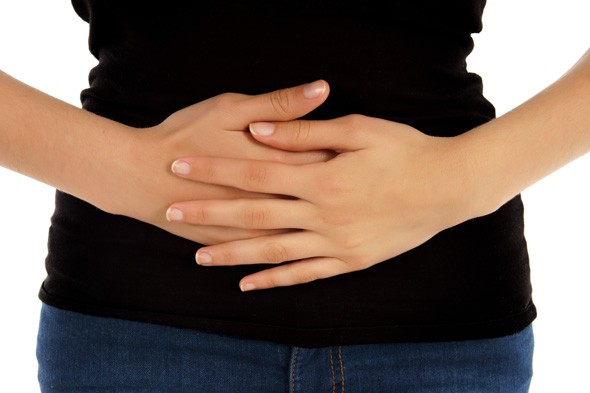By Deborah Rowe
Bloating comes in various forms. Whether you’re burping or farting excessively, or if you’re sporting a fuller tummy, bloating is rather harmless but can sometimes be pretty embarrassing.
While it’s common to assume one’s bloat is caused by consuming too much food, it can actually be attributed to other factors such as the type of food you’ve eaten or even possible diseases.
Below we list down some possible causes of bloating. Read on to find out which of these various causes might be the reason behind your bloat and you’ll feel a lot better once you address it!
- You consumed too much food high in fibre and/or sugar
While we all know that food high in fibre is good for your health, consuming too much of these food at one go might be the reason you’re feeling gassier and fuller in size. Likewise, consuming too much sugar, be it in the form of desserts or sugar-laden drinks, could be another reason why you’re bloated.
As fibre cannot be digested in one’s intestines, the bacteria inside your colon digests the fibre and sugar instead. When this happens, gas is produced and causes your bloat. Rather than to eliminate both fibre and sugar from your diet, try reducing your consumption of such foods and hopefully your bloating can be managed. Remember, moderation is key, especially with regard to your sugary goodies!
- You are experiencing Irritable Bowel Syndrome
Irritable Bowel Syndrome (IBS) is a rather common disorder that affects your colon and results in cramping, abdominal pain, diarrhoea, bloating and gas. IBS is a functional condition, meaning that there’s no issue with the structure of your colon, but the problem is with how it works.
Unfortunately, bloating is one of the common side effects of IBS. While there is no cure for this unfortunate disorder, you can manage the symptoms by mainly managing your diet (reducing your fibre intake), lifestyle and stress. More severe cases might require medication though.
- You are experiencing constipation
If you’re feeling constipated, you might notice that you’ll feel that extra bit bloated too. If you feel a lot better once you head to the toilet, then it’s probably constipation causing your bloat. The reason for this is that intestinal gas gets trapped slow moving poop and builds up, leaving you feeling fuller.
The best way to get rid of it will be to gradually introduce or add more insoluble fibre into your diet. Focus on fruits, vegetables or nuts, and remember to keep hydrating to get your bowel movement going!
- You are allergic to gluten
Celiac disease is when one has an adverse reaction to gluten, which is a family of storage proteins found in wheat, barley and rye. This disease is an autoimmune condition where your body mistakes gluten as a threat to your system and attacks it, resulting in damage to the surface of your bowel, which subsequently affects your ability to absorb nutrients from food.
When you experience bloating from this illness, it tends to take a day or two to subside after consuming a trigger food. Besides bloating, you might also experience flatulence and diarrhoea.
If you suspect having Celiac disease, a blood test will be able to prove it. If you are diagnosed with this unfortunate illness, you will need to avoid any food containing gluten. On the plus side, you’ll feel a lot better!
- You have a bad case of acid reflux
If you feel your bloat in your upper belly especially after eating, or feel uncomfortable or sick following a meal, then you might be experiencing acid reflux, or simply put, indigestion.
This occurs when food, stomach acid and other digestive juices flow back into the oesophagus, which happens when the valve between the stomach and the oesophagus doesn’t close tightly or relaxes at inappropriate times. Overeating might also be a cause of indigestion.
One way to get rid of this will be to consume carbonated drinks as the fizz in these beverages can relive the pressure by forcing you to burp. Otherwise, you could also try eating smaller, lower-fat meals to rule out overeating as a cause, or to take antacids.
- You are experiencing hormonal fluctuations
Ladies, you might notice that you’ll feel that extra bit bloated when it comes to that time of the month. This can largely be attributed to raised progesterone hormone levels that occur right before your period.
When this happens, it can potentially affect your gut mobility, meaning that food passes through your system a lot slower, hence causing your bloat. Unfortunately, it’s just something you’d have to deal with every month but fret not, because this bloat will be over before you know it.
